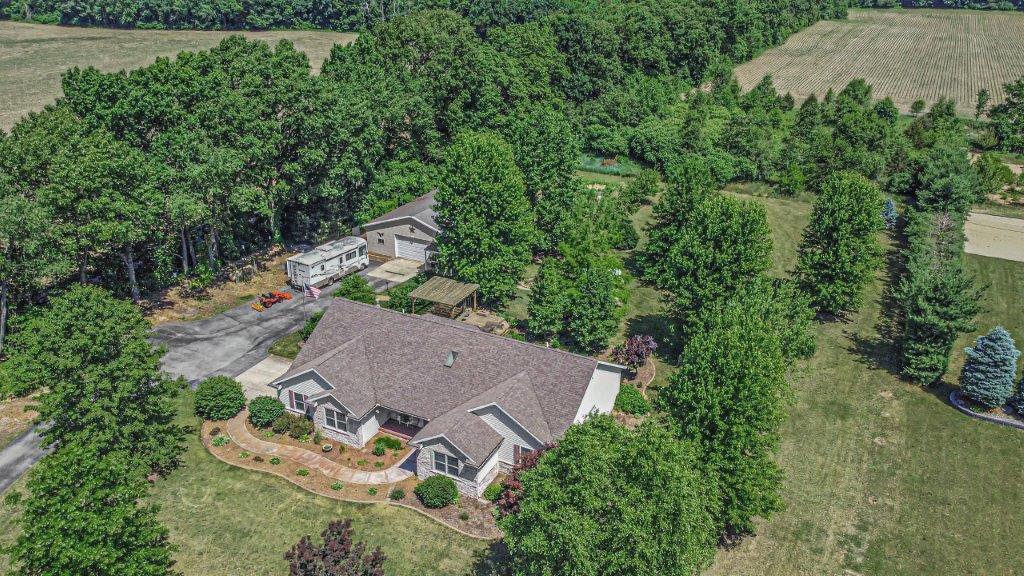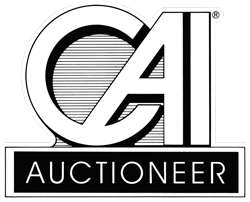For some, buying real estate property can feel intimidating and overwhelming.
They may think financial commitments are risky, and no one enjoys losing money or the stress of pinching pennies.
At Bright Star, we understand the emotions that come with investing in real estate property. That’s why we place the responsibility for clarity on our shoulders.
If you have a good experience, we gain your respect - and we do our best to accomplish this every single time. We build our business on customer satisfaction.
We prioritize buyers and sellers at an auction. We don’t just want to make a sale. We want to make sure that both parties are satisfied with the outcome.
If you’re considering buying real estate property—minus the stress—Bright Star Auctions provides financial transparency at every auction.
Finding real estate property and sticking to your budget doesn’t have to be confusing or stressful.
In this post, we’ll simplify the six steps to buying real estate property at an auction.
1. Ensure Finances are in Order
The first step to buying real estate property is to make sure your finances are in order.
It’s important to ask these questions before the auction date:
- What are the auction terms (cash only, financing, etc.)?
- Will I be approved for a loan?
- Can I afford to buy property right now?
Before bidding at a real estate auction, make sure to have a thorough conversation with your lender. Be upfront about your financial status and let them know that you’re wanting to buy at an auction.
With your lender’s guidance, you can find out if you’re pre-approved for a loan and if buying is a smart financial option for you.
Don’t ever go into an auction without first consulting with your bank or lender.
Knowing where you stand financially will help you manage your budget wisely and understand what you can afford currently.
If a buyer’s financing falls through due to a larger purchase than they can afford, this creates a situation where the buyer, the seller, and Bright Star lose money.
We don’t want you to be maxed out financially, and you probably don’t want to lose money either.
Unlike a traditional real estate listing, buying property from Bright Star involves financial transparency.
An auction allows the advantage of knowing what other people are offering for property and whether you can match or top their bid.
And unless you place the highest bid, you’re not bound to a contract.
However, whether you place the winning bid or not, it’s always necessary to create a budget before bidding at a real estate auction.
2. Survey the Property Before Bidding or Buying
Once you understand your financial capabilities, the next step is surveying the real estate property.
In some cases, we divide large expanses of land into separate lots. But for the most part, real estate property is sold as is. With that in mind, make sure the property you’re interested in suits your needs.
We recommend attending at least one open house before the auction.
While we specialize in selling real estate property, it is your responsibility to perform due diligence.
Before bidding on or buying real estate property, take time to research its personal and market value.
In other words, a piece of property might be valuable to you but not worth much according to market prices.
Will you personally use the real estate property, or will the land and building be used for commercial or industrial purposes?
Market pricing might not affect your decision to buy a house for personal use. On the other hand, if you’d like to buy buildings to use as apartments, property face value could influence the success or failure of your rentals.
Property analysis is a key component to buying property from an auction.
3. Learn How to Bid at the Auction
The third step of buying real estate property at auction is placing a bid.
While this process might seem self-explanatory, every auction is different.
For instance, we use three primary methods: live bidding, online bidding, and phone bidding. In some cases, an auction might have all three types of bidding.
Live bidding refers to an in-person auction where you raise your hand, or a sign, to place your bid. In this scenario, you are hearing firsthand the offers of other bidders in real time.
An online auction is set up like eBay bidding. As you watch the bidding process, you can trump the current bid or wait to see how high it will go. Once the time runs out, we will contact the winning bidder and post the purchase price online.
Phone bidding is essentially the phone version of online bidding.
With a phone-in auction, there is not a sealed bid.
This means that bidders can call us, ask what the current bid is, and decide whether to top it. If you hold the highest bid but someone raises it, we will contact you and disclose the current bid.
This bidding process continues until the bidding stops or the time runs out.
In all cases, there are two things that set an auction apart from a traditional real estate listing:
- Full disclosure of your competition’s offer
- A firm bidding-end date (typically the day of the auction)
With financial transparency, the advantage for the buyer is that he could purchase property at a lower price. On the other hand, the seller might exceed the overall value of his property due to allowing a dynamic competition.
At an auction, bidding provides an opportunity for both buyers and sellers to get a great deal.



4. Confirm the Closing Date
Buying from an auction makes for stability as a potential buyer because you won’t ever be left guessing when the closing date is.
Plus, you never have to sign a purchase contract, unless you place the winning bid.
By the end of the auction, the highest bid will always be disclosed along with the closing date.
However, please note that the closing and auction don’t always land on the same date.
Depending on the seller, closing will take place many times 30-45 days after the auction date.
An instance of this would be if you buy farmland in the fall. If the farmer still needs to harvest and store his crops, as a buyer, you could agree to leave the land as is until after harvest.
We usually go over auction terms before starting the bidding process.
But if you need property by a certain day, make sure to double-check the closing date.
5. Keep the Down Payment in Mind
After the max bid is placed and the auction is closed, the buyer must sign a purchase agreement.
The purchase agreement is a contract stating that the buyer will purchase the property, close by an agreed date, and will pay a down payment that goes toward the final price.
Typically, the down payment for auction property is somewhere from 5-10% of the sale price. Known as “earnest money,” this amount goes to Bright Star and/or the seller in the case that the buyer breaks the purchase agreement.
For the most part, though, buyers keep a budget in mind to avoid financial instability.
Regardless, serious buyers need to analyze what they can personally afford.
When buying real estate property from an auction, signing a check for the down payment is only one of many payments to come.
6. Find Property and Place Your Bid
Investing in real estate property might feel terrifying if it’s your first time, but understanding your financial limits is the biggest obstacle to overcome.
Once you understand the financial aspects, the process of bidding loses its scare factor. And at any given auction, you are never forced to bid outside your comfort zone.
The beauty of creating a personal bidding cap is that you might get a better deal than you anticipated.
At Bright Star, our goal as auctioneers and real estate agents is always to make the buying process fair for everyone.
7. Get Started
Don’t wait to find the real estate property you’ve always wanted. Let us give you the opportunity to find the deal of a lifetime.
Call us with questions you may have at (574) 825-0704 or view our current listings and place your bid today!




